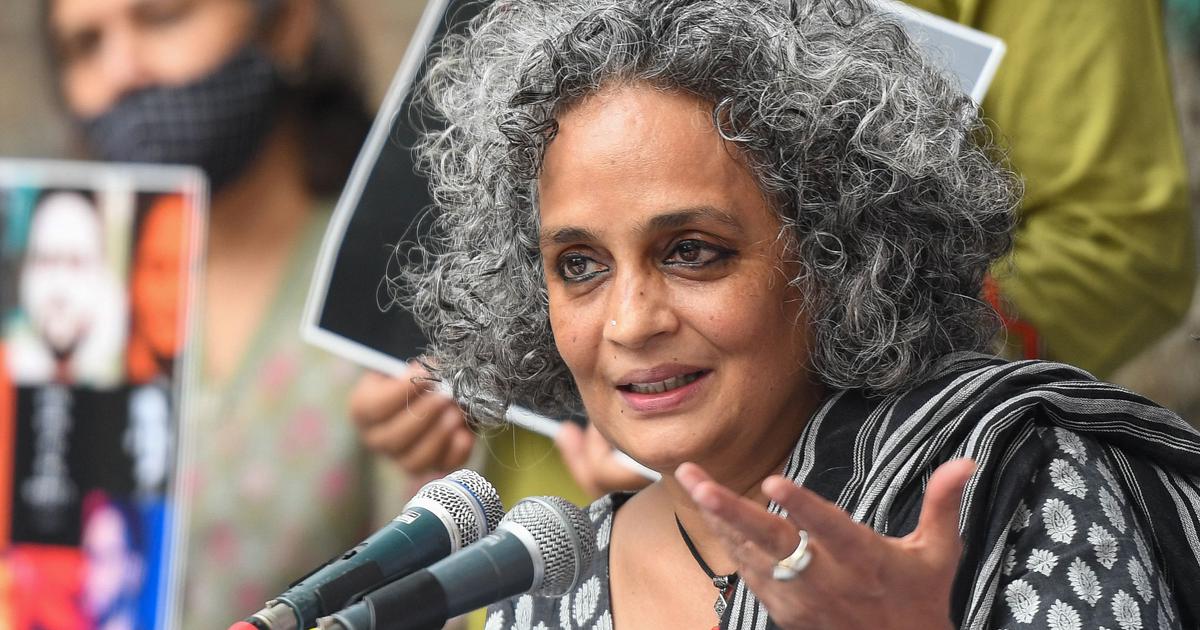Indian novelist Arundhati Roy, renowned for winning the prestigious Booker Prize in 1997 for her novel “The God of Small Things,” is now facing potential prosecution for a speech she delivered in 2010 regarding Indian-administered Kashmir. This move comes after Lieutenant Governor Vinai Kumar Saxena of India’s national capital, Delhi, approved the Delhi Police’s request to prosecute Roy and a former professor from the Central University of Kashmir, Sheikh Showkat Hussain. The case revolves around alleged provocative speeches delivered during an event in 2010 that some claim advocated for the territorial division of India.
Indian Author and the Controversy Surrounding
Arundhati Roy is a well-known Indian author, famous for her writing and activism. Her vocal criticism of Prime Minister Narendra Modi’s government has made her a polarizing figure in India. A criminal complaint accusing her and others of sedition was filed in 2010 but remained inactive within India’s slow-moving criminal justice system. However, recent reports confirm that the case has received approval to proceed in court.
Legal Proceedings Against Arundhati Roy
According to a First Information Report registered in November 2010, Roy and Hussain, among others, delivered provocative speeches at a conference organized by the Committee for Release of Political Prisoners. The event, titled “Azadi – The Only Way” (Freedom, the only way), took place on October 21, 2010. While the original complaint accused Roy and others of advocating for the secession of Kashmir from India, tensions around this issue are exceptionally high in India due to its history of conflicts with Pakistan over the Himalayan region.
Charges and Legal Framework
The Lieutenant Governor granted permission for the prosecution under Sections 153A, 153B, and 505 of the Indian Penal Code. Section 196 of the Criminal Procedure Code requires state authorization for such prosecutions. Section 153A deals with promoting enmity between different groups based on religion, race, place of birth, residence, language, and doing acts prejudicial to harmony. Section 153B pertains to imputations and assertions prejudicial to national integration, while Section 505 addresses intentional insult with the intent to provoke a breach of the peace.
Additionally, Section 13 of the Unlawful Activities Prevention Act (UAPA) has been invoked in the case. It deals with punishment for advocating, abetting, or inciting any unlawful activity and can lead to imprisonment for up to seven years.
Reactions and Controversy
The decision to prosecute Arundhati Roy has drawn mixed reactions. Some political figures, like senior Congress leader P. Chidambaram, question the use of sedition laws and express concern about potential misuse. Chidambaram argues that the law on sedition has been misused in the past and calls for its abolition. He believes that existing laws are adequate to handle cases involving incitement to violence.
In contrast, the BJP’s Amit Malviya clarifies that the prosecution is not based on Section 124A (sedition) but rather on other sections of the Indian Penal Code. As such, the matter remains before a Constitutional Bench of the Supreme Court.
The case against Arundhati Roy, a celebrated Indian author and activist, is a contentious issue with legal, political, and social implications. The charges stem from a speech delivered in 2010, which some argue advocated for the division of India’s territory. The use of Section 124A, the sedition law, is under consideration in the Supreme Court, while other sections of the Indian Penal Code and the Unlawful Activities Prevention Act are being pursued for prosecution. This case highlights the delicate balance between freedom of speech and national security in India and has sparked intense debate among political figures and the public.
